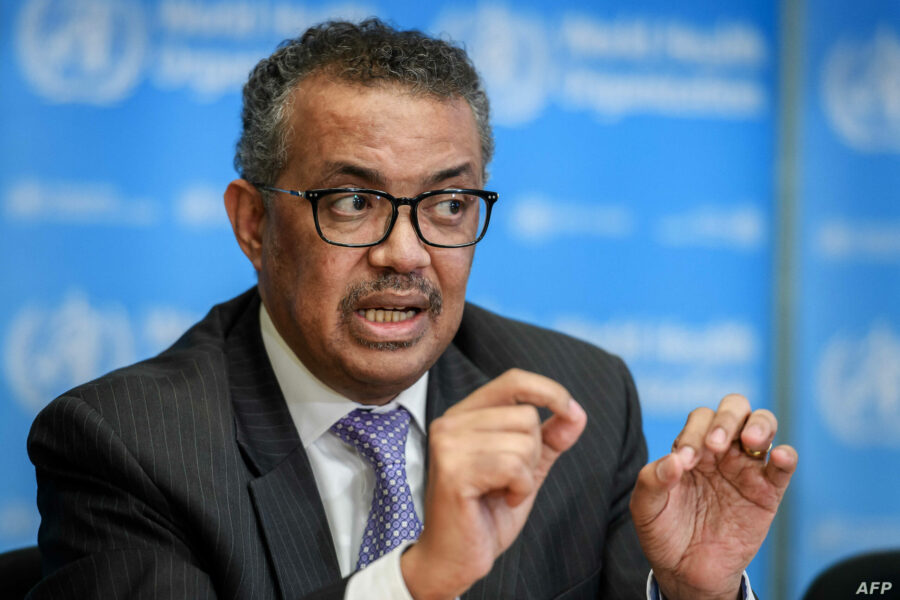The World Health Organization (WHO) has warned that the Omicron and Delta variants could produce a tsunami of Covid-19 cases that will overwhelm the healthcare systems as cases surge to record level as it tops 1 million daily cases globally for the first time.
This was made known by the Director-General of the WHO, Tedros Adhanom Ghebreyesus, during an online news conference.
Tedros said that Covid-19 cases could put immense pressure on healthcare systems, expressing concern that the Omicron is more transmissible and circulating at the same time as the Delta variant.
What the Director-General of the WHO is saying
In his statement, he said, “I am highly concerned that Omicron, being more transmissible, circulating at the same time as Delta, is leading to a tsunami of cases. This is and will continue to put immense pressure on exhausted health workers, and health systems on the brink of collapse.”
The WHO boss further stated, “This virus will continue to evolve and threaten our health systems if we don’t improve the collective response. Right now, Delta and Omicron are twin threats that are driving up cases to record numbers, which again is leading to spikes in hospitalisations and deaths.’’
Governments across the globe have been in a dilemma about imposing anti-coronavirus pandemic restrictions and keeping the economies and societies open as the highly transmissible variant drives cases to levels never seen before in the United States, Britain, France and Denmark.
The variant is reported to have already started overwhelming some hospitals in the United States, the hardest-hit nation where the seven-day average of new cases hit 265,427, according to a Johns Hopkins University tracker.
But there was some hope as data indicated a decoupling of the number of cases and hospitalisations.
Meanwhile, the WHO in its weekly epidemiology report said that the overall risks related to Omicron remains very high and cited consistent evidence that it has a growth advantage over the Delta variant.
The UN health agency revealed that a decline in the number of cases has been witnessed in South Africa, with early data from the country, the United Kingdom and Denmark suggesting a reduced risk of hospitalization with Omicron. It, however, said more data was still required.
What the WHO Emergency Chief is saying
The WHO Emergency Chief, Michael Ryan, in a note of caution said it would be important in the coming weeks to suppress transmission of both variants to the minimum that we can.
Ryan said Omicron infections began largely among young people.
He said, “What we haven’t seen is the Omicron wave fully established in the broader population. And I’m a little nervous to make positive predictions until we see how well the vaccine protection is going to work in those older and more vulnerable populations.”
What you should know
Recall that a few days ago, South African scientists in a study, discovered that the Omicron variant could potentially displace the Delta variant of the coronavirus as research shows that infection with the Omicron variant boosts immunity to the Delta variant.
Although the study only covered a small group of people and is yet to be peer-reviewed, it found that people who were infected with Omicron, especially those who were vaccinated, developed enhanced immunity to the Delta variant.
The WHO had earlier said that the Omicron variant is reported to also be causing infections in people that are already vaccinated or who have recovered from the Covid-19 disease as they could be re-infected.
